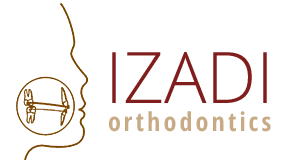Our teeth play an essential role in our health. From chewing to speaking, our teeth help us function and stay healthy. They do more than simply make up our smile. While our smiles are important, the jobs our teeth perform are far more vital for our overall health.
Our teeth sit in our jaws in a way that they rely on each other for support. If you lose one tooth, you must replace it; otherwise, you risk losing more. In a similar manner, our jaws align in a way that they work together. In fact, the alignment of our jaws affects our teeth. If there is an issue with your teeth or jaw, it can create many types of problems. Dentists will refer to this as a bite problem.
One type of common bite problem is an underbite. An underbite happens when the lower teeth sit out farther than the upper teeth. While the bottom teeth can jut out from under the top teeth, a misalignment of the jaw typically causes an underbite. Unfortunately, an underbite can create many problems.
Temporomandibular Joint Disorder (TMJ)
TMJ is a condition that affects the movement of the jaw. Any type of deformity in the joints, ligaments, or muscles can cause TMJ. Additionally, overworking the jaw can strain the muscles, creating TMJ symptoms. Typically, TMJ causes a popping or clicking sound in the jaws. It may not cause any pain or discomfort in the early stages. However, advanced TMJ can cause pain while chewing or speaking.
Because an underbite creates a misaligned jaw, it cannot function properly. Over time, you may develop pain in your jaw and face. This is because the muscles try to overcompensate for the jaw’s alignment, which will cause overuse. Like any other muscle group, this can make the muscles in your face and neck sore or tender to the touch.
Headaches
Many patients with an underbite complain of headaches. This is due to the alignment of the jaw. For the same reasons you may develop TMJ, you can experience headaches. If the jaw is misaligned, the muscles work to correct the bite. Unfortunately, the muscles cannot continue this movement without breaking down or tightening. As a result, the muscles become overworked and cause pain and discomfort.
The tension in your jaw can expand to your neck and shoulders. Excess stress can create headaches. If you cannot resolve the tension, you can experience chronic headaches.
Worn Teeth
Your teeth can endure a lot of wear and tear. However, your teeth can wear down more quickly if your teeth are out of alignment. With an underbite, your teeth may rest on the ridges, which can break or chip. Due to the nature of an underbite, your front teeth will experience more wear than they can handle. Your front teeth help you tear and slice into food rather than grind. They are not as durable as your other teeth. Therefore, they are more likely to chip.
